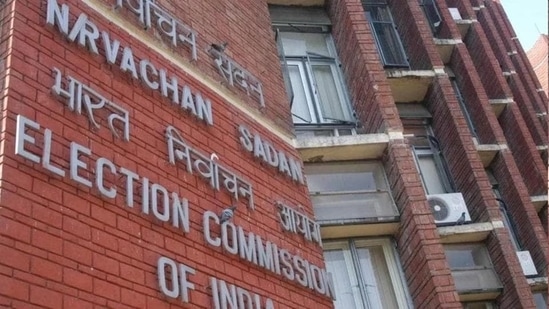Jammu and Kashmir assembly elections: What happened in 2014 polls? A recap of events
The Election Commission is set to announce the dates for assembly elections in 2024 on August 16 for newly formed union territory Jammu and Kashmir
The Election Commission is set to announce the dates for the long-awaited assembly elections in Jammu and Kashmir.

The decision to hold assembly elections in Jammu and Kashmir has come after calls from several regional political parties to conduct polls at the earliest, especially after the elected government was dissolved in 2018.
Also Read: Election Commission to announce assembly polls schedule at 3pm today
Jammu and Kashmir has not held an assembly election since 2014, and since 2019 the region has been split into two union territories - Jammu and Kashmir, and Ladakh.
The Election Commission had sent a three member delegation to consult all stakeholders in the matter and to judge the preparedness of the Jammu and Kashmir union territory to conduct elections in 90 seats. There have also been concerns due to an uptick in terror attacks in the region.
Also Read: Indian Army captain killed in encounter with terrorists in J-K's Doda district; operations underway
Lt Governor Manoj Sinha told told the Kashmir News Observer that conducting assembly polls will be the next step in the logical sequence of events that started with delimitation in the region, and which will eventually result in restoring statehood.
Also Read: HC directs DC to take over management of Srinagar’s Raghunath Temple
Here's a look at what happened in the 2014 general elections.
Assembly elections 2014
In 2014, Jammu and Kashmir, while it was still classified as a state, held elections in 87 seats. The polls took place in five phases from November 25 to December 20.
Despite calls to boycott the elections by hardline regional parties, the state recorded a 65 per cent voter turnout. Omar Abdullah, who was chief minister at the time, and his party Jammu and Kashmir National Conference broke their alliance with the Indian National Congress.
Meanwhile an unlikely coalition government bloomed, with the Bharatiya Janata Party continuing its 2014 streak and aligning with the more prominent regional party, the People's Democratic Party (PDP).
Omar Abdullah resigned and for a short while President's rule was imposed until the BJP and PDP decided the chief ministerial name. On March 1, 2015, Mufti Mohammad Sayeed, took the oath as the chief minister of Jammu and Kashmir.
On January 7, 2016 Mufti Mohammad Sayeed passed away, and the state was under governor's rule again for a brief stint. Mehbooba Mufti, leader of the PDP, took over as chief minister in his stead.
Dissolving the government
In June, 2018, the BJP pulled out of its alliance with the PDP, breaking apart the coalition government and causing PDP's Mehbooba Mufti to resign as the chief minister. The governor's rule was imposed once again.
With the coalition government falling apart, several regional parties were ready to form government such as the PDP and SLCP. However, governor Satya Pal Malik choose to dissolve the state assembly.
The President's rule was imposed on the state on December 20, 2018. A year year, Jammu and Kashmir was stripped of its statehood after the abrogation of Section 370.
Jammu and Kashmir remained without a chief minister for six years.






